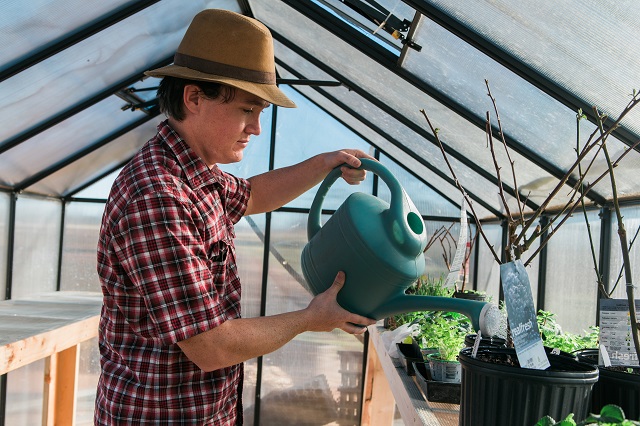
Last year, Citizen Potawatomi Nation partnered with six Oklahoma tribes, the Euchee Butterfly Farm and the University of Kansas Monarch Watch to reestablish monarch butterfly habitats on tribal lands in Oklahoma. They competed for the first – and hugely competitive – grant from U.S. Fish and Wildlife Foundation for monarch habitat restoration and were the only tribal partnership funded.
“Oklahoma is in the center of the recovery plan for the monarch migration highway,” Jane Breckinridge, co-project director of the Tribal Environmental Action for Monarchs project and director of Euchee Butterfly Farm said. “When I started approaching partners for this project, many non-tribal leaders asked why it is important. When I asked tribal leaders, none asked why we need to do it, just how they could help.”
To find and implement resources, like locally sourced milkweed seeds, nurseries to grow them and knowledge of conservation, Breckinridge contacted Chip Taylor – the director of Monarch Watch at the University of Kansas.
“We are both trying to learn habitat restoration from A to Z and impart that knowledge. We need to restore milkweed plants to continue the monarch migration – which is truly one of the more magnificent phenomena on the planet,” Taylor said. “What makes this project unique is that no one is working with seven communities or teaching people about restoration to create sustainability.”
Along with sharing the knowledge of hoop house construction and germination methods, tribes across Oklahoma are now sharing cultural knowledge and opening communication with each other through this project.
“Trying to restore native lands back to original health to protect and affirm sovereignty is something we all care about and we can work together to accomplish,” Breckinridge said. “It’s not just about doing the restoration – although that’s a fantastic goal – but we want to train the trainer. Once the knowledge comes to each tribe, it can go to tribal youth, into surrounding communities and out from there.”
Last year, the tribes planted 2,500 milkweeds each and collected native seed in the fall to clean and germinate. Each tribe is attempting to grow 4,000 native nectar plants in hoop houses during the winter to plant in the spring, with an additional 2,500 milkweed plants per tribe.
On April 11, CPN will host a public event about monarch education at the North Reunion Hall with the help of the Natural Resources Conservation Service. To learn more about this project or RSVP for this event, please contact CPN Assistant Tribal Historic Preservation Officer Andrew Gourd at 405-878-5830 or Andrew.Gourd@potawatomi.org.
